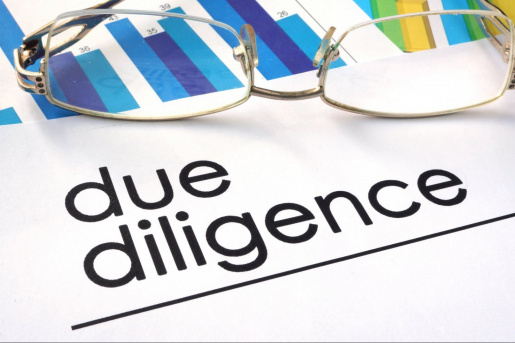Our SERVICES
What is Due DILIGENCE?
Due diligence is a comprehensive verification process that includes data collection, analysis, and audit of the subject of purchase (your potential investment).
When should you do the due diligence?
- Purchase of company shares;
- Merger/acquisition;
- Purchase of real estate;
- Investing in projects, startups;
- Change of members of the board, shareholders of the company;
- Reorganization of enterprises;
- Restructuring;
- And much more.

Due Diligence allows you to comprehensively examine a potential deal and ensures minimization of possible risks. Before closing a deal, the buyer/contributor/investor should make sure that the assets he buys are in good condition and competitive. That is, you check the subject of purchase, its market value, market position, tax obligations, accounting, reporting, reputation, conduct a check of contractors and other commercial components in order to make sure that the deal will be profitable for you. Thus, a full audit is carried out in order to identify all potential shortcomings and losses that a deal may lead to if it has not been properly evaluated. And only after a full check you make a decision on the consummation of the deal.
Types of due DILIGENCE
Legal due diligence
- Verification of the legal form of the company, its constituent documents;
- Verification of the founders, members of the board, their powers, measures of responsibility;
- Verification of the structure of the company, subsidiaries, representative offices;
- Verification of the authorized capital and property of the company;
- Analysis of the intellectual property of the company.
Tax due diligence
- Determination of the tax system of the company, analysis of the tax burden of the company;
- Analysis of the application of tax benefits and deductions, as well as tax risks;
- Checking the quantity and quality of tax audits.
Accounting due diligence
- Checking company accounts;
- Analysis of primary documentation;
- Assessment of the quality of accounting.
Financial due diligence
- Checking the income and expenses of the company;
- Verification of debts, loans, and obligations of the company;
- The study of the dynamics of financial indicators.
Marketing due diligence
- Assessment of the company's position in the market;
- Checking the business reputation of the company;
- Determination of the competitiveness of the company;
- Benefit analysis; examination of omissions.
Stages of due DILIGENCE

- Creation of a team responsible for conducting due diligence (lawyers, tax consultants, accountants, economists, marketers, etc.)
- Collection of all documents on the subject of the transaction for their further analysis. A confidentiality agreement is usually signed at this stage, and the due diligence team may request all the necessary information and documentation from the target company. These typically include corporate reports, intellectual property contracts, shareholder information, and litigation history. The buyer may also request regulatory, insurance, rental, and other financial information. In general, the buyer should have a clear idea of the financial condition of the target company, operating assets, legal issues, and strategic position.
- Checking all the information collected. During the verification process, the team determines whether the detected problems can lead to a complete rejection of the deal or whether the offer should be changed. In some aspects, the information found may change the structure of the deal or its terms.
- Preparation of an independent report on the results of due diligence. This report includes a summary of all the components of the company, problems that were discovered during the due diligence process, as well as any areas that were deemed satisfactory. At the end of the report, the buyer evaluates the deal and makes a decision on its consummation.
Due diligence helps investors and companies understand the nature of the deal, the risks associated with it, and whether the offer matches their portfolio.
You can familiarize yourself with the aspects of Due Diligence in more detail here.
You can study M&A transactions in more detail here.





















































































